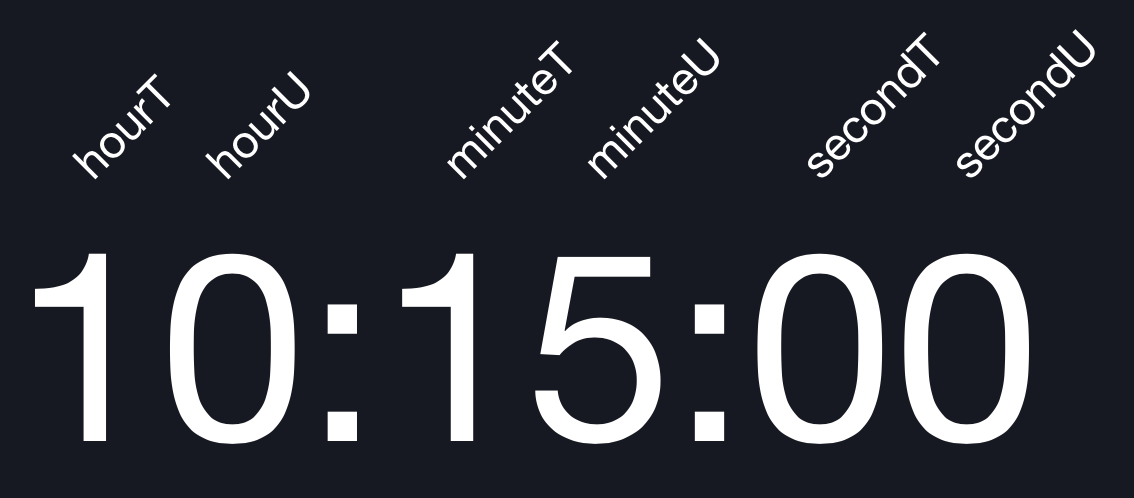Real-time Clock
BitMasher features a clock which is displayed when the device is put to sleep. This clock is driven by the real-time clock and calendar module (RTCC). Functions to setup and query the RTCC module are found in BM_RTCModule. Clocking for the real-time clock module is derived from the external low-frequency (32.768 kHz) oscillator.
Querying the Time
The functions, BM_RTCModule_getCurrentTimeHMS and BM_RTCModule_getCurrentTimeBCD can be used to get the current time. There are two formats for representing time: Hour-Minute-Second (HMS) and Binary Coded Decimal (BCD).
HMS
In HMS representation, the hour, minute and second is assigned its own variable and is most convenient to work with:
typedef struct
{
int32_t hour;
int32_t minute;
int32_t second;
}BM_RTCModule_TimeHMS;
Calling BM_RTCModule_getCurrentTimeHMS will return the current time in HMS. A pointer to an instance of BM_RTCModule_TimeHMS is required as a parameter input.
BCD
In BCD representation, each digit in the hour, minute and second is assigned its own variable:
BCD Representation

typedef struct
{
int32_t hourT;
int32_t hourU;
int32_t minuteT;
int32_t minuteU;
int32_t secondT;
int32_t secondU;
}BM_RTCModule_TimeBCD;
While this may seem inconvenient at first, the advantage of BCD is that each digit can be packed into a single 32-bit variable and easily transferred to the MCU's RTCC registers.
The time can be converted between different representations by using BM_RTCModule_convertBCDToHMS and BM_RTCModule_convertHMSToBCD functions.
Setting the Time
BM_RTCModule_setTime is used to set the time. This function expects the time in HMS format.
Counter
In addition to telling the time, the BM_RTCModule also features a counter that increments every minute (every minute, an interrupt is triggered which increments the counter). This counter is planned to be used in a timeout system that puts the device to sleep after a period of inactivity.